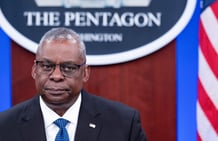
Italian Prime Minister Mario Draghi announced, on Wednesday, that an extraordinary meeting of the Group of Twenty on Afghanistan will be held on October 12.
Italy, which currently holds the rotating presidency of the Group of Twenty, is seeking to hold an extraordinary meeting to discuss the situation in Afghanistan since the Taliban movement came to power last month.
“We are heading towards a humanitarian catastrophe in Afghanistan, and it is our duty to intervene,” the Italian news agency ANSA quoted Draghi as saying at a press conference.
The Italian official also urged G20 members to “do something without conditions,” stressing the need to “save human lives.”
Draghi revealed that “Qatar and the United Nations will be among the participants in the meeting.”
The extraordinary meeting will be held weeks before the summit of the G20 leaders in the Italian capital, Rome, on October 30-31.
Draghi told the United Nations General Assembly last week that “the summit will focus on security, humanitarian aid and human rights in Afghanistan.”
The Italian Prime Minister’s announcement came a day after the European Union’s foreign policy chief, Josep Borrell, emphasized “the need for strong coordination between international partners in the political and humanitarian aspects, and for the careful calibration of future engagement for the benefit of the Afghan people.”
The Group of Twenty, or what is known for short as “G20”, consists of the countries of Turkey, the United Kingdom, the United States, Saudi Arabia, Argentina, France, Germany, India, Indonesia, and Italy.
It also includes Japan, Mexico, Russia, South Africa, South Korea, Australia, Brazil, Canada, China, then the European Union supplementing the Group of Twenty, the International Monetary Fund and the World Bank.
The “Twenty” was established in 1999, at the initiative of the Group of Seven summit, bringing together the major industrialized countries with emerging countries, with the aim of promoting constructive dialogue between them, after the financial crises in the 1990s.













